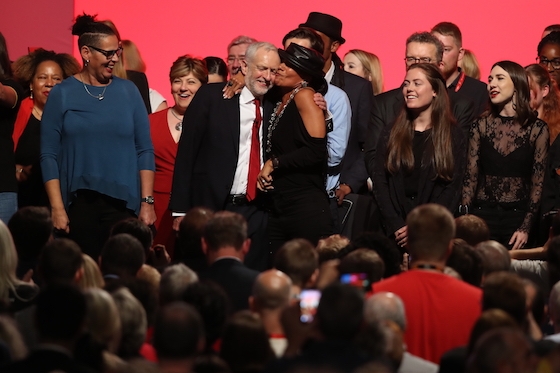Labour’s lost centrists weren’t just physically absent at the party’s conference: they were also absent from the debate. Perhaps those who had turned up from the ‘moderate’ wing of the party had expected frequent denunciations of ‘Blairites’ from the main stage, but it didn’t come. In fact, even in the fringes, the moderates came up far less as enemies than the unions and Momentum.
This is partly because the Labour Party now feels very comfortable in its Corbynite skin and is more interested in ensuring it can deselect those moderates in the most efficient way rather than attacking them. But the moderates themselves are also quiet because they are on what is probably best described as a psychological precipice.
I look at this precipice in the latest issue of ES Magazine, where I go behind the scenes of a possible new centrist party. Labour MPs who have been minded to leave are indeed talking a lot about it, but they aren’t yet able to up and leave.
Conference itself has made that harder. It wasn’t a disaster. It didn’t involve endless insults towards the moderates, which may have galvanised them to leave sooner. What it did involve was a party that looks professional and does seem keen and ready for government, even if its solutions will not help the people it is pitching to one bit. The moderates have made the shift from arguing that Corbyn just isn’t good enough to win an election to now accepting that the bigger problem is that he would be bad for Britain if he became Prime Minister. But they know that his promises to the electorate are incredibly beguiling.
Labour’s latest party political broadcast underlines this. It is aimed at the voters I described last week who party strategists are particularly interested in: those who live in towns and feel left behind. It has a cogent argument about the failure of the economic consensus over the past few decades to deliver for those towns.
https://twitter.com/UKLabour/status/1044980165103644677
Of course, there are arguments against this, not least that Labour’s economic approach is unlikely to make things better. The party doesn’t address the cultural anxieties of these towns, either, and those worries lay behind voters who live there turning to Leave in 2016. If one of your foundational beliefs is that western values are something to apologise for rather than celebrate, you may find that your party doesn’t actually appeal to those voters.
So the moderates do still have many reasons to want to leave the Labour Party. The problem is that the narrative is now turning away from that party being a total disaster, and this means that anyone who does want to walk away may need to accept that there just isn’t going to be perfect time to do so.







Comments